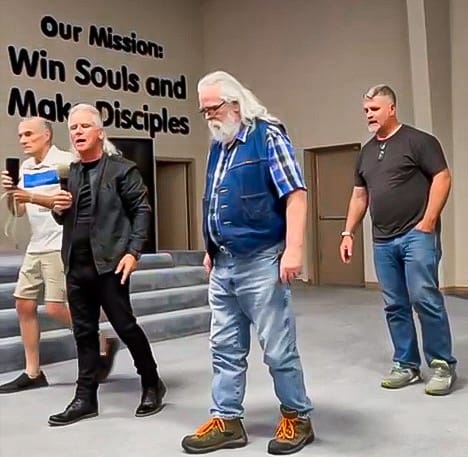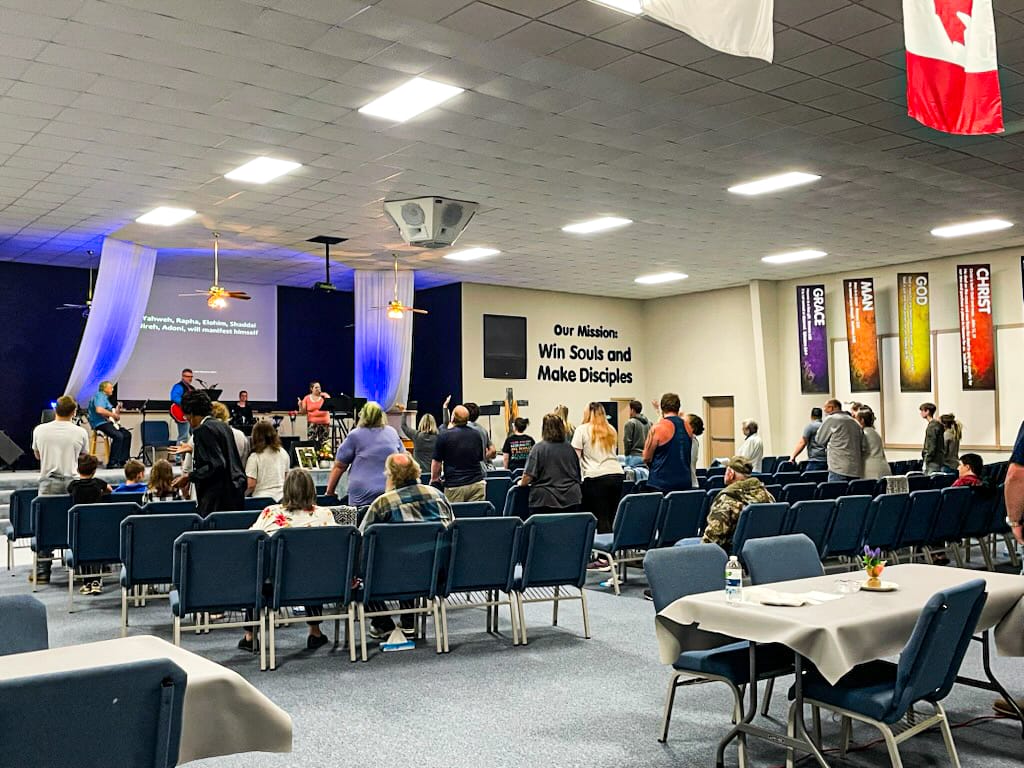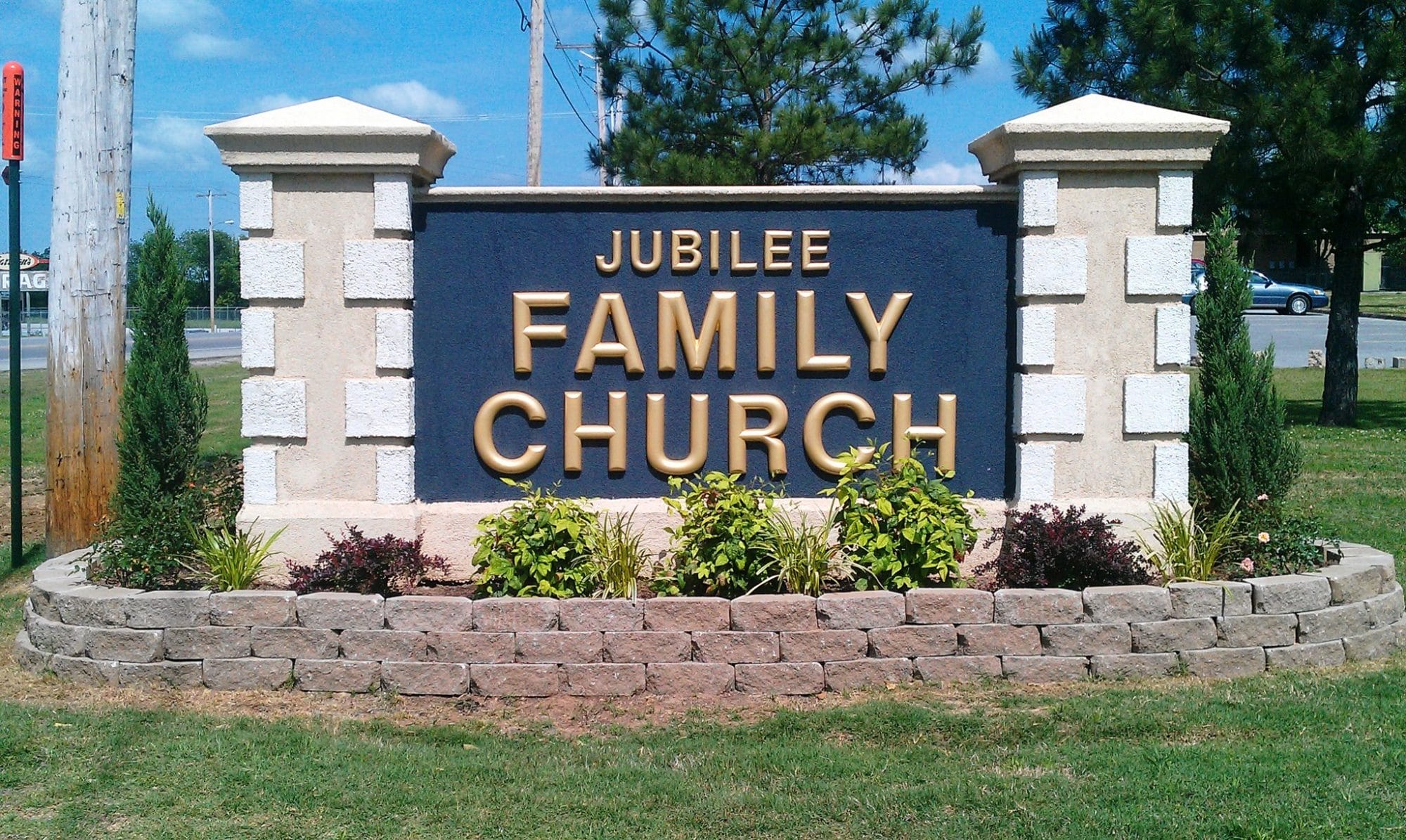God of the Impossible
Nine people told Tony Hammack it was impossible.
“You can’t just start a radio station,” they said. “It’s against the law without a license from the FCC.” There were no available frequencies in the Batesville area where he pastored, and the FCC’s filing window wouldn’t be open for years. Tony was determined, but every path led to the same dead end.
Tony believed God called him to start a Christian radio station. He’d produced a TV program while at his previous church in Cape Girardeau, Missouri. “I thought if I could produce a TV program, surely I could do radio.”
But every phone call left Tony discouraged. “I kept telling God that I couldn’t do it,” he says. “And He kept telling me, ‘Yeah, I want you to do it.’ So, I just kept calling people. I didn’t know what else to do.”
The ninth person Tony called was Farron Dice at the WayFM radio network. Like all the others, he told Tony it couldn’t be done. Tony had heard the response so many times he burst into laughter. “I know! But I’m supposed to do this.”
Farron laughed. “Hey, buddy. Where’d you say you live again?”
“Batesville, Arkansas”
Tony heard typing on the other end. And then silence.
“You’re not going to believe this,” Farron said. “There’s a radio station in your area that’s gone dark. If you can work something out with the owner, you can get that frequency.”
Initially, the frequency owner was reluctant, but Tony persisted. After several meetings, she gave the frequency to Tony. In 2008, the station launched. Today, KBAP 88.1 FM broadcasts praise and worship music across Independence County, reaching beyond Batesville. Every Thursday morning at 10:00, Tony hosts a talk show. “I interview different people. It’s usually the same guys, though. These grumpy old men. They’re mad about the world, and it’s awesome. I have a blast with those guys.”
The station went on the air one year after Tony arrived in Batesville to pastor Jubilee Family Church. He was willing to pursue the radio station, believing that God could do the impossible. The same could be said for his church. For Jubilee is not a place where you’re likely to hear “It can’t be done” from anyone there.
Do We Have Anybody Who Can Score?
Tony coached high school basketball for nine years. In all that time, one thing stood out above the rest. “There are basic fundamentals in basketball. There’s footwork, ball handling, passing, and rebounding. All those things are really important,” Tony says. “But there’s one statistic that is the most important. You can do everything well, but if you can’t do this, you’re going to lose every single game. It’s scoring. You’ve got to have somebody on your team who can shoot.”
Tony sees a parallel to life in the church. “We’ve got people who can stack chairs. Pick up the Kleenexes after Sunday service. We’ve got people who can run the sound system. Strum a guitar. Sing. We’ve got people who can speak. But do we have anybody who can score? Is there anybody who can make a disciple?”
Tony’s conviction about making disciples through relationships comes from his own conversion experience. Raised as “a humanist with a little bit of hedonism on the weekends,” he knew virtually nothing about Christianity when he came to faith at 17. His first mentor, Aaron Layton, showed him what Christian living looked like in practice. “He would roll out of bed and roll right into prayer every day. He carried his Bible everywhere he went. He didn’t drink. Didn’t have sex with girls. He just lived this out in front of me. It was amazing that I had this guy in my life.”

“There are no shortcuts to discipleship other than spending time with people. You can’t just sit a guy in front of a whiteboard and tell ’em a bunch of stuff and expect that to do the trick,” Tony says. “You’ve got to really love that guy. You’ve got to build a real relationship. I’m a hundred percent for teaching the Bible. But it’s nice to see a human being who’s living it out.”
At Jubilee, Tony puts this philosophy into practice using resources like Real Life Discipleship: Building Churches that Make Disciples by Jim Putman. “I’m using it with the people I’m discipling at the church. It’s intentional. It’s a ‘come and follow me’ model. Pretty simple. You just do stuff with people. If a person can get the concepts of Jesus’ discipleship ministry, I think that’s a pretty good thing to do.”
One of the men Tony is discipling is a retired school teacher. “He got into trouble, ended up homeless, and went through a recovery ministry. He just plugged in at the church, and he’s super faithful. We talk every single day. He burned some bridges, and I’m trying to help him reconcile with his kids.”
Among its members, Tony sees two kinds of people within their church. “There are some who are cool to just come on Sundays. ‘I need to get my battery charged, and I’m good.’ Then there are those who are really hungry and want to do more. I’m really excited about both groups. Jesus had a multitude. But Jesus also had the 72, the 12, and then the 3. Some people aren’t content to just be there. They want to turn the world upside down for Jesus.”
Creating a Stir
Batesville moves at a different pace than Little Rock or Bentonville. It’s a small town of about 11,000, and you don’t have to travel far to get everything you need. “If you’re a hustle-and-bustle kind of person, Batesville might not be your place,” Tony says. “But if you want to throttle down a little bit and enjoy your life, it’s a great place to live.”
At the height of the COVID-19 pandemic, one of Jubilee’s members approached Tony. “Pastor Tony, do you want to give away produce?” Her parents owned a farm in Missouri and had extra food that would spoil if they didn’t get rid of it. Tony was open to the idea. “Sure. Why not?”
He went to the police to warn them about potential traffic jams, but they didn’t seem too concerned. When the first 18-wheeler pulled up to the church, no one at Jubilee could have imagined what it would lead to.
What started with one truckload quickly escalated into more deliveries, causing quite a stir in an otherwise quiet community. Cars lined up for miles to receive boxes of produce. This tiny congregation of about 80 had undertaken a project that would challenge churches several times its size.
Several weekends into the distribution, an angry police officer showed up demanding to know who was in charge. When he found Tony, the officer told him, “You should have told somebody you were going to do this.” “I tried to warn you guys!” Tony told him.
Weekend after weekend, the church rallied in the sweltering Arkansas heat. Volunteers organized traffic flow, stationed people at multiple loading points, and coordinated the logistics of moving pallets. Prayer teams walked through the car lines asking, “Is there anything we can pray with you about?” Some people waited for hours in line just to see what the commotion was about.
By the time it was over, the church had given away nearly 500,000 pounds of produce. “I was super proud of the church,” Tony says. “People here still remember it. They say, ‘Hey, man. That was awesome. Thanks for doing that.’ We, as a church, had this opportunity to seize the moment, and we took it.”
Nine Minutes
Bob Stegall sat in the congregation in his wheelchair, hooked to an oxygen tank with tubes in his nose. Bob suffered from pulmonary fibrosis and was already in hospice care. He knew his last day was drawing closer and closer. He and his wife Annie had driven from Calamine to attend revival meetings with evangelist John Kirby at the church.
When Kirby walked up to Bob, he asked, “Are you ready to get out of that chair?”
“I sure am,” Bob replied.
Tony watched in amazement as Bob pulled the tubes from his nose, locked his wheelchair wheels, and slowly pushed himself to his feet.
“Come with me. Walk with me,” Kirby said.
Bob’s wife, Annie, whispered to Tony: “If he stands up for longer than thirty seconds without oxygen, he’s going to turn blue and pass out.”
“I wanted to stay close to Bob because I wasn’t sure if he was going to receive a miracle or if he was going to collapse and fall to the ground,” he says.
But Bob didn’t collapse. He stood upright. For nine minutes.
The congregation burst into applause and shouts of praise.

After the service, Bob talked with others, said goodbye, and pushed his empty wheelchair out the door. The next night, he returned—without his wheelchair, without his oxygen tank—and sat through the rest of the revival as though nothing was wrong.
When the hospice worker came to Bob’s house to remove his bed, he was shocked. “I’ve never done this before,” he told Bob. “When I come in to take a hospice bed, it’s because the person has died.”
Spiritual Deliverance
Recently, one of Jubilee’s members was in crisis. She had endured severe trauma in high school that led to cutting and suicidal thoughts. After giving her life to Christ, she experienced years of relief. But those thoughts returned with renewed intensity.
“She told me, ‘I’ve had the worst week. I want to kill myself,’” Tony says. She asked Tony and a worship leader to come to her house and pray for her.
When they arrived, they understood that this woman was under demonic oppression. Tony asked her if she would be willing to renounce the evil spirit oppressing her. One by one, they renounced how it was manifesting. First, anxiety. Then, depression. When they got to suicide, she faltered. Whatever was oppressing her did not want that word coming out. “She would say, ‘s-s-s…sui…s-s-s…sui’” Tony says.
After she had finally renounced the evil spirit, the woman told them, “I feel sick.” She went into the bathroom and threw up. “I’ve seen this before in cases of demonic oppression — the physical response when the spirit leaves,” Tony says. “Her suicidal thoughts left her immediately.” When she came out, she looked like a different person. “She’s no longer suicidal. She’s happy now.”
Tony acknowledges that many are skeptical about stories of healing and deliverance, but that doesn’t bother him. “I’m not too worried about the skepticism. I’m more interested in the truth,” he says. “I just throw the newspaper on the porch. What you get out of it is up to you.”

God’s Business
On the surface, Jubilee may look like an ordinary small-town church. But spend enough time there, and you will discover a community that operates by a different set of principles. They believe God is still in the business of doing the impossible.
And in the quiet town of Batesville, He is doing just that.
We are grateful for the exceptional work of Jubilee Family Church and other churches across Arkansas that are equipping people with the truth and believing God for the impossible. They are helping the whole Church grow.
Speaking the truth in love, we will grow to become in every respect the mature body of him who is the head, that is, Christ. From him, the whole body, joined and held together by every supporting ligament, grows and builds itself up in love, as each part does its work.
Ephesians 4:15-16


